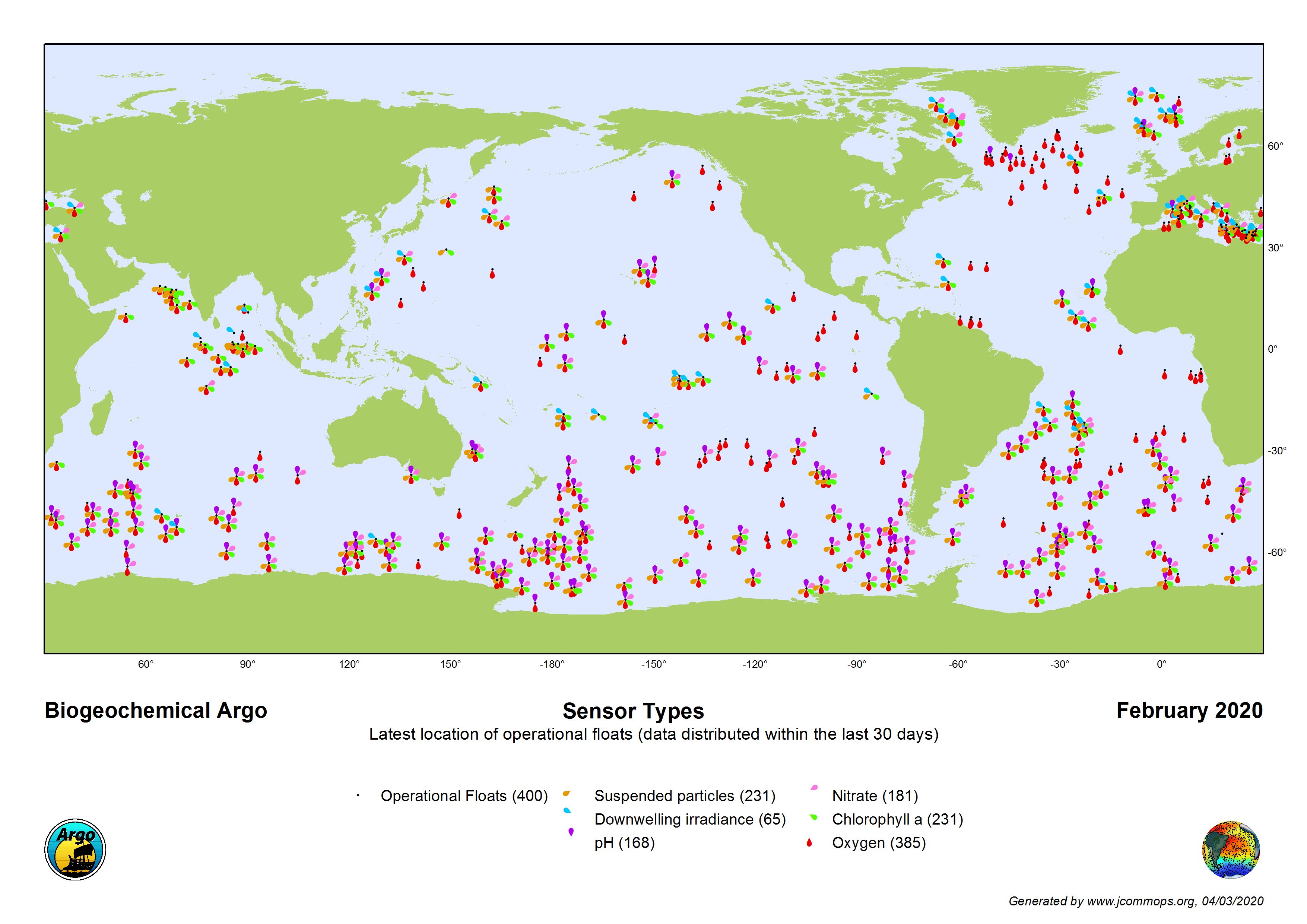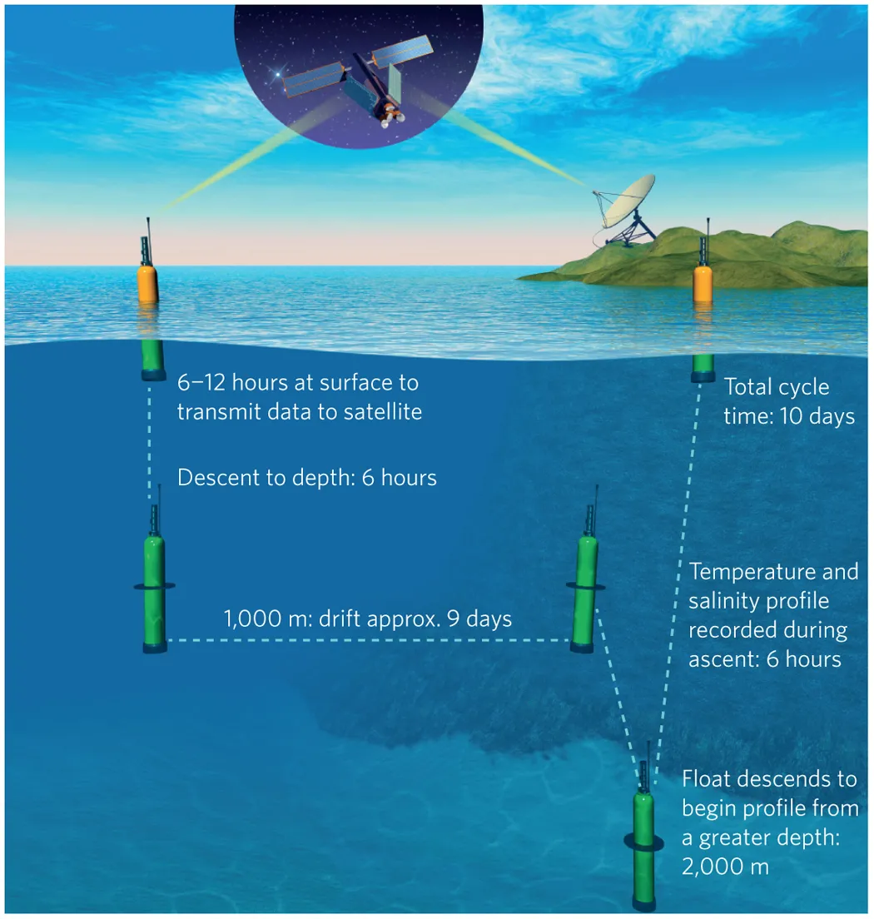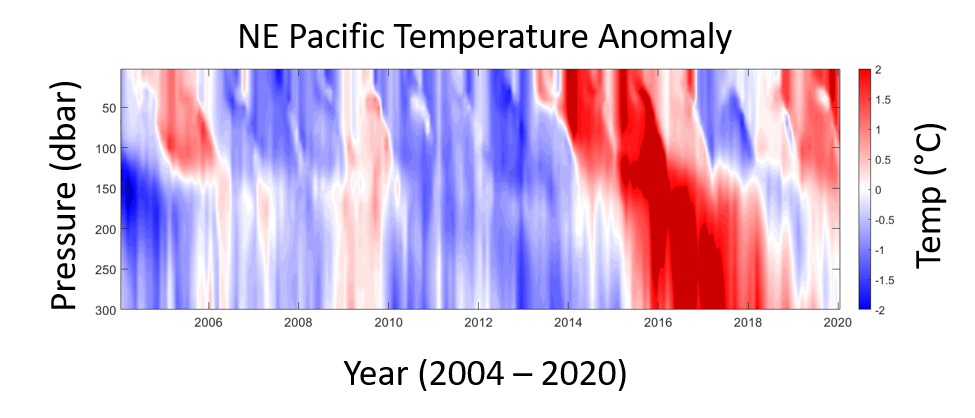Long-term monitoring of ocean biogeochemistry in the NE Pacific is essential for the stewardship of marine ecosystems that affect Canada’s natural resources. In addition to the direct influence of climate change, the region faces particular challenges from declining oxygen levels and increasing acidification because of the North Pacific’s location at the end of the ocean’s deep circulation route.
A consortium involving Canada’s academic research community, the federal government, and Ocean Networks Canada (ONC) is contributing to the international Argo program through the acquisition and deployment of BGC Argo floats. In addition, several floats with capability to reach the seafloor (Deep Argo) will be deployed to monitor deep ocean water masses whose potential changes are poorly understood.


BGC Argo floats are advanced autonomous platforms that can carry a variety of sensors to make water column measurements. We intend to operate the floats following the core Argo program requirements; on a ten-day duty cycle, profiling through the top 2000 metres of the ocean. Data is transmitted to shore-based computers where it will be immediately available as part of the international Argo program. Argo floats equipped with sensors to measure temperature, salinity, and pressure have operated for more than two decades; however, the technology for advanced BGC Argo floats has only recently reached maturity. We intend to deploy these new floats capable of measuring dissolved oxygen, nitrate, pH, chlorophyll, particulates, and light levels.
We intend to deploy a second group of floats to measure just dissolved oxygen in addition to temperature, salinity, and pressure. Finally, deep Argo floats, capable of descending to 4000 meters or more, will be deployed to measure the entire ocean depth of the NE Pacific. As these deep floats drift along currents in the ocean’s abyss, they have the potential to provide new discoveries of these poorly understood environments.
Establishing an active BGC Argo program in the NE Pacific will help us answer a wide range of questions around ocean absorption of carbon dioxide from the atmosphere, ocean acidification, deoxygenation, and changing marine productivity. The Argo float array already provides much needed data on major events such as the widespread North Pacific marine heat wave of 2014-2016, and BGC Argo will allow for monitoring of productivity, carbon uptake, and ecosystem function associated with similar everts in the future. Through this program, Canada will be joining the international community to monitor our oceans and understand the impact of planetary scale human activities.
